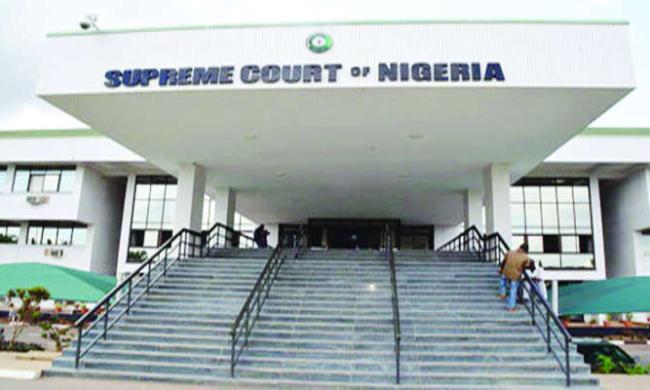Prominent human rights lawyer and Senior Advocate of Nigeria, Femi Falana, has responded to allegations by the Minister of the Federal Capital Territory, Nyesom Wike, over the interpretation of a Supreme Court judgement concerning the defection crisis in the Rivers State House of Assembly.
In a statement issued on Monday, Falana said Wike’s comments were aimed at discrediting him and inciting the judiciary. He firmly denied any misrepresentation of the court’s decision.
“In a recent outburst, the Minister of the Federal Capital Territory, Mr Nyesom Wike, mocked me for losing a case he won at the Supreme Court and labelled me ‘a television lawyer’. I did not respond initially, as Mr Wike remains the only Life Bencher in Nigeria who has never handled a case in any court,” Falana stated.
He noted that Wike had renewed his verbal attack during a press conference, accusing him of lying about the defection status of 27 lawmakers on a Channels Television programme.
Wike’s Claims and Falana’s Response
Wike claimed that Falana, in a public interview, falsely suggested that the 27 lawmakers had defected from the Peoples Democratic Party (PDP) to the All Progressives Congress (APC), a position which, he said, was not supported by the Supreme Court.
Wike warned that such statements from respected legal figures could trigger unrest. “If someone of Falana’s calibre can lie on national television, it’s very serious. Lies can cause crises,” he said.
Falana countered, saying his remarks were a constitutional analysis of a matter already before the Federal High Court in Port Harcourt. He maintained that the issue of defection had been discussed by the Supreme Court suo motu and confirmed that the defectors had sworn affidavits and made video declarations of their political switch.
He further stated, “It is public knowledge that Mr Wike celebrated the Supreme Court ruling with great fanfare. Yet, he now attacks me for offering commentary on the same judgement—without any legal basis.”
Legal Right to Critique
Falana insisted that under Section 39 of the Nigerian Constitution and Article 9 of the African Charter on Human and Peoples’ Rights, he has the legal right to criticise judicial decisions.
“If Mr Wike believes I’ve acted improperly, he should file a complaint with the Legal Practitioners Disciplinary Committee,” he added.
He also criticised Wike for previously urging the Body of Benchers to sanction lawyers who criticise court rulings. “Unlike Mr Wike, who insults judges when they don’t support his political agenda, I have always offered respectful, constructive criticism,” Falana stated.
He referenced the notable Adegoke Motors Ltd v Adesanya case to highlight the principle that even the Supreme Court is not beyond reproach: “We are final not because we are infallible; we are infallible because we are final,” as famously said by Justice Oputa.
Falana also recalled praise from Supreme Court Justices who had appreciated his critiques and contributions to legal discourse.
Concerns Over Political Exploitation
Falana concluded by warning that the Supreme Court’s decision might embolden politicians who seek to exploit legal technicalities for personal gain.
“While the court ruled that proof of defection must include party registers, this may be manipulated by political opportunists to justify what is effectively political prostitution,” he said.
Rivers State Crisis Background
The political turmoil began in late 2024 when 27 PDP lawmakers allegedly defected to the APC, reportedly under Wike’s influence, in a bid to undermine Governor Siminalayi Fubara.
The group, led by Speaker Martin Amaewhule, moved to impeach the governor. The Federal Government subsequently declared a state of emergency on March 18, 2025, suspending the governor, his deputy, and all lawmakers. Vice Admiral Ibok Ibas (rtd) was appointed as Sole Administrator.
The Supreme Court, in its 28 February 2025 ruling, found no conclusive evidence of defection, especially after Governor Fubara withdrew his original claims. The PDP, however, continues to press INEC to declare the lawmakers’ seats vacant. A separate legal bid by the Labour Party to oust the lawmakers was dismissed in Federal High Court.



